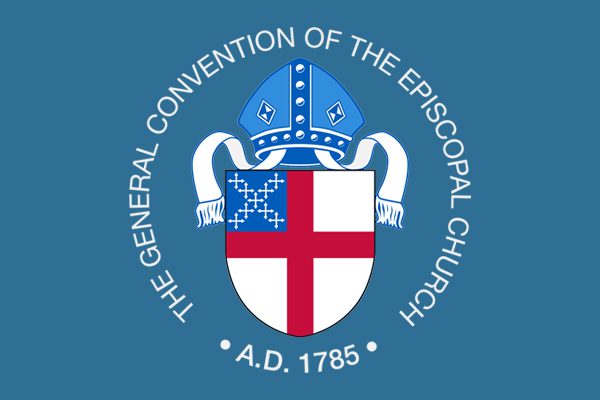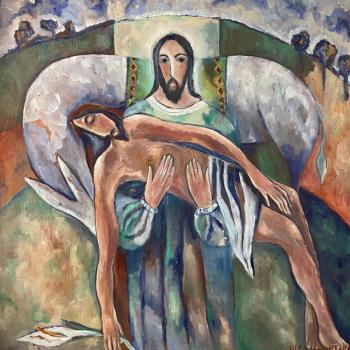As he was leaving for the Episcopal Church’s General Convention one of our bishops posted the thoughts of a bishop attending the Convention more than a century ago:
In the coming Convention, questions of policy will be discussed, and strong conviction may express itself in strong terms. Superficial lookers-on may talk about our factions. The secular newspapers are not unlikely to regard the debates and votes as recording the triumph of one side over another. They mistakenly regard the Church synod as like unto a political convention. But the underlying principle upon which it proceeds is intrinsically different. In the political convention the object is, by the strife of debate and combination of forces, to discover the will of the majority. It is not so in a Church assembly. Our object is not to discover what is the will of the majority, but what is the mind of God. He makes His mind known to us by the guidance of the Holy Spirit, and by the harmony of the various orders in the Church. For there are three distinctive bodies assembled in the Convention. There is the House of Bishops, who sit by virtue of their consecration and as representatives of the Apostles. There are also the clergy, four sent from each diocese. They do not represent, as our members of Congress do, an equal number of constituents. They are chosen by their dioceses just as the United States Senators are chosen by the legislatures of their States; and so likewise it is with the lay delegates. The clergy and the laity, however, represent their respective degrees and orders of priesthood in the body of Christ. They come, all three together, to consult and learn what is the mind of their Divine Head. He makes His will known by the guidance of His Spirit, and by making men to be of one mind in an house. It is thus by the agreement of the several orders we humbly believe we know Christ’s will.[i]
“They come, all three together, to consult and learn what is the mind of their Divine Head.” This is certainly the mindset that everyone attending General Convention should bring with them. Grafton was right, too, conventions and conferences of this kind should not be thought of as a political convention.
But mainline Protestants have caught a bad case of leverage politics from the culture around them: The tendency to think of national gatherings and the election of national leaders as the opportunity to make everyone do what they think ought to be done.
So, two questions face Convention-goers this week:
One: Can the attendees find the space in the Convention’s schedule to take time to listen?
There are regular occasions for worship, and that will help. But to hear what God has to say requires time and space. Both the schedule and the volume of legislation before the Convention militates against that effort.
So, delegates who attend the Convention will need to find time on their own: to pray, to listen, to let go of the varied certainties that they bring with them. The only place to do that is during times that people typically use to socialize.
In future years – even though the time for the Convention has been shortened this year and probably should be shorter – perhaps it is time to structure that kind of space into the schedule for our conventions. That can be done by whittling away at the number of resolutions that the Convention processes, and that effort would have the added benefit of changing the Convention’s political climate.
But whatever we do to change the Convention itself, the unavoidable question is this: Can the delegates set aside their political ambitions to remake the church from the top-down and actually listen for the voice of God?
Against the backdrop of the cultural forces at play in our country, that will be a challenge. Our nation’s politics are bedeviled by the absence of deliberative legislative efforts, because that process is slow, difficult, time-consuming, and best done away from the limelight. It entails gathering information, testing the possible consequences (intended and unintended) of any decision made, the torturous process of building consensus, and the delicate business of crafting the language needed. And our legislators are not trying to discern the mind of God!
Delegates to the church’s Convention have a far more difficult challenge. They need to be prepared to do all of these things and discern the mind of God. I realize that theoretically much of that work is supposed to be done ahead of Convention. But if there is any reason to have the Convention itself, by definition, it must entail the effort to seek the guidance of the Holy Spirit, and that effort entails the willingness to revisit the certainties that delegates bring with them.
In potted and polemical histories of the church’s early development, it is common for people to argue that the church’s theology was the product of politics. But that reading of the past is pure projection. Yes, there were political issues involved. The Christian faith is incarnational and Christians believe that God uses and communicates through human beings, however fallible. And in that reading of the Spirit’s work in and through the church, it is almost impossible for political considerations to be a factor, but they were hardly the prime mover in shaping the church’s theology.
It is our day that is explicitly and often all but completely political. It is our day that is more thoroughly political and the premise that every three years we ought to gather as a denomination to give the church marching-orders is deeply imbedded in our denominational consciousness.
We should remember that it was rare for the church to hold councils, in order to dictate either the theology or the practice of the church. The Eastern Orthodox churches have held seven ecumenical councils. The Oriental Orthodox churches recognize just the first three, and the Roman Catholic church has held twenty-one. Most Protestant churches recognize either four or seven as being truly ecumenical.
Conventions are not councils, of course, but we should remember that they are different, and that differnce should temper our view of what conventions are and what they ought to do.
[i] Charles Grafton, 2nd Bishop of Fond du Lac, ‘Church Principles and Church Parties’, a sermon preached at Church of the Advent, Boston, 1904.












